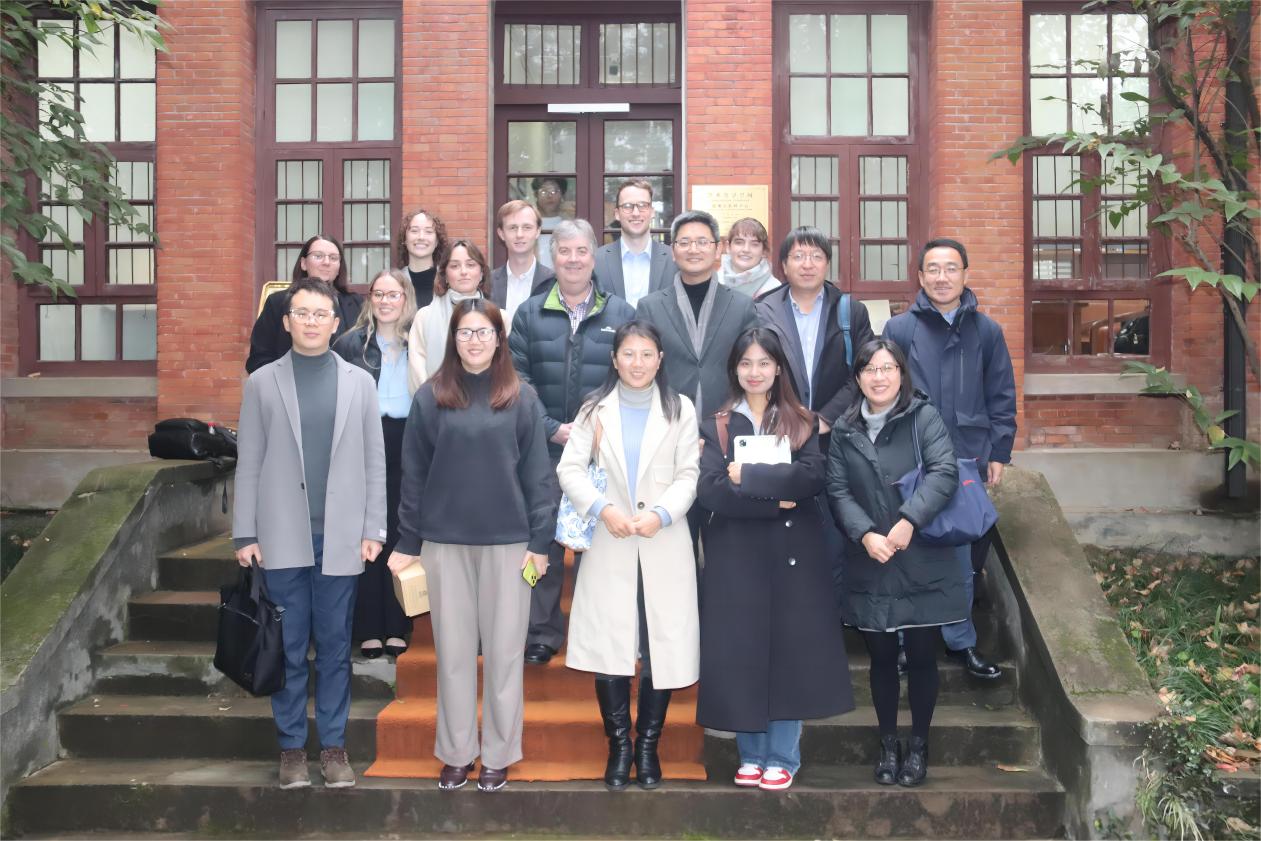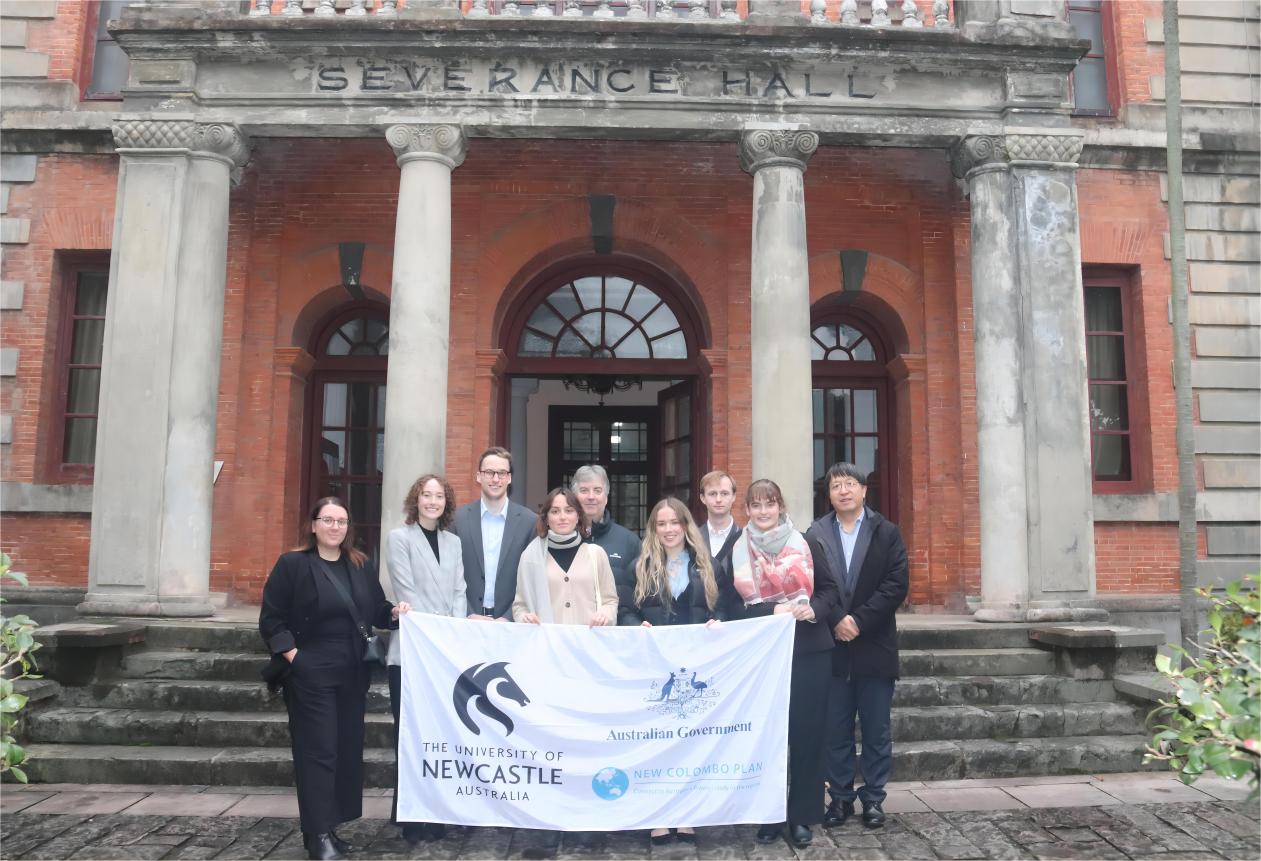- The Second China–Latin America and Caribbean Region Legal Professionals Exchange Program (Hangzhou Session) was successfully held at Zhejiang University.2025-12-18
- “If the World is a Family” — Student Exchange and Legal Practice Seminar between Newcastle Law School and Guanghua Law School2025-12-08
- LLM & SJD International Students of Guanghua Law School Attend Zhejiang International Legal Service Partnership Conference2025-12-04
On December 4, 2023, Professor Shaun McCarthy, Deputy Dean of the Law School of University of Newcastle and Director of the Law Center of the University of Newcastle, and Dr. Li Bin, Director of the Bachelor of Laws Program, visited the Guanghua Law School for academic exchanges. Lu Qing, Deputy Dean of the Guanghua Law School, Ma Guang, Director of the Institute of International Law, Associate Professor Bi Ying, He Xiangbai and Wu Peicheng, researchers of the Hundred Talents Project, and Hong Jiaying, Secretary of Foreign Affairs, participated in the event. The two parties involved had academic exchanges on the legal systems of China and Australia. The event was hosted by Ms. Bi Ying in Meeting Rome 206, Building 5, Zhijiang Campus.
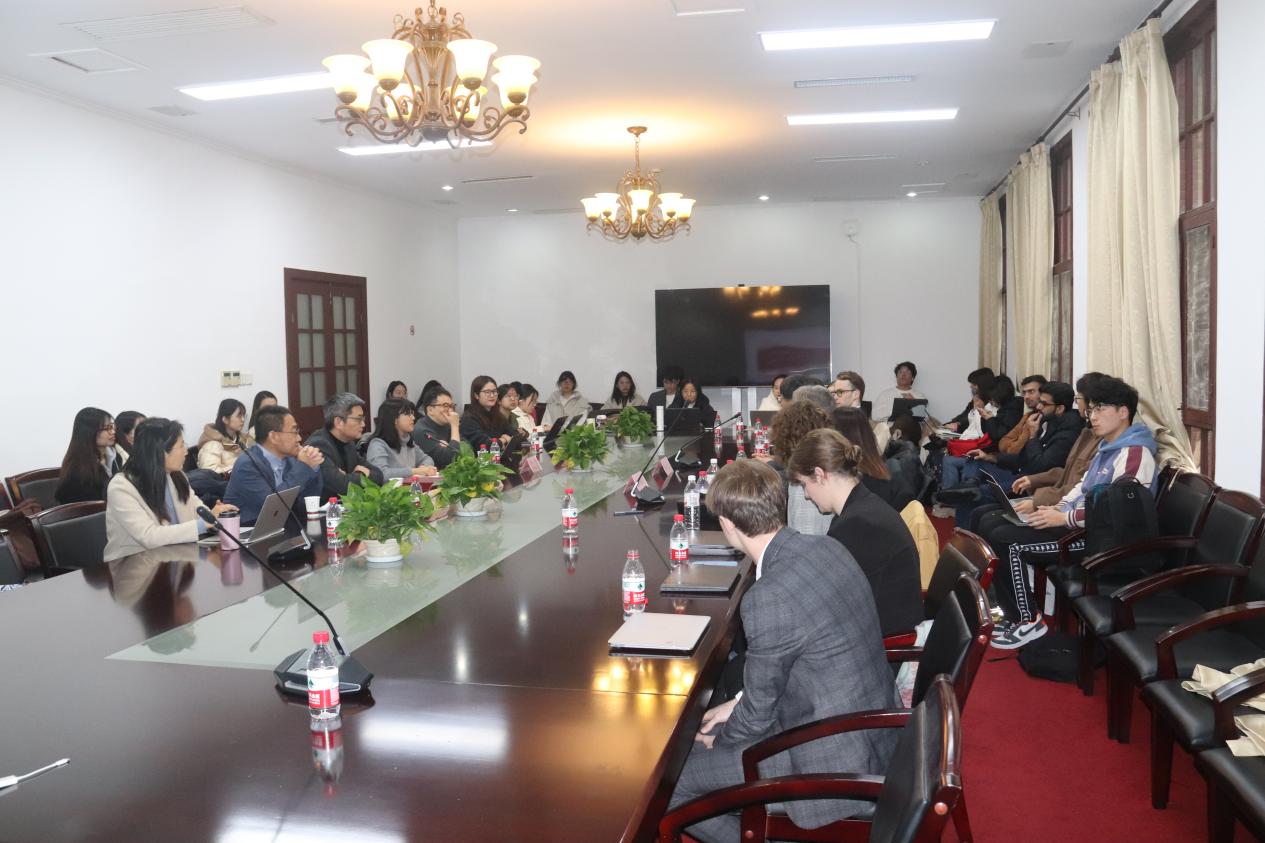
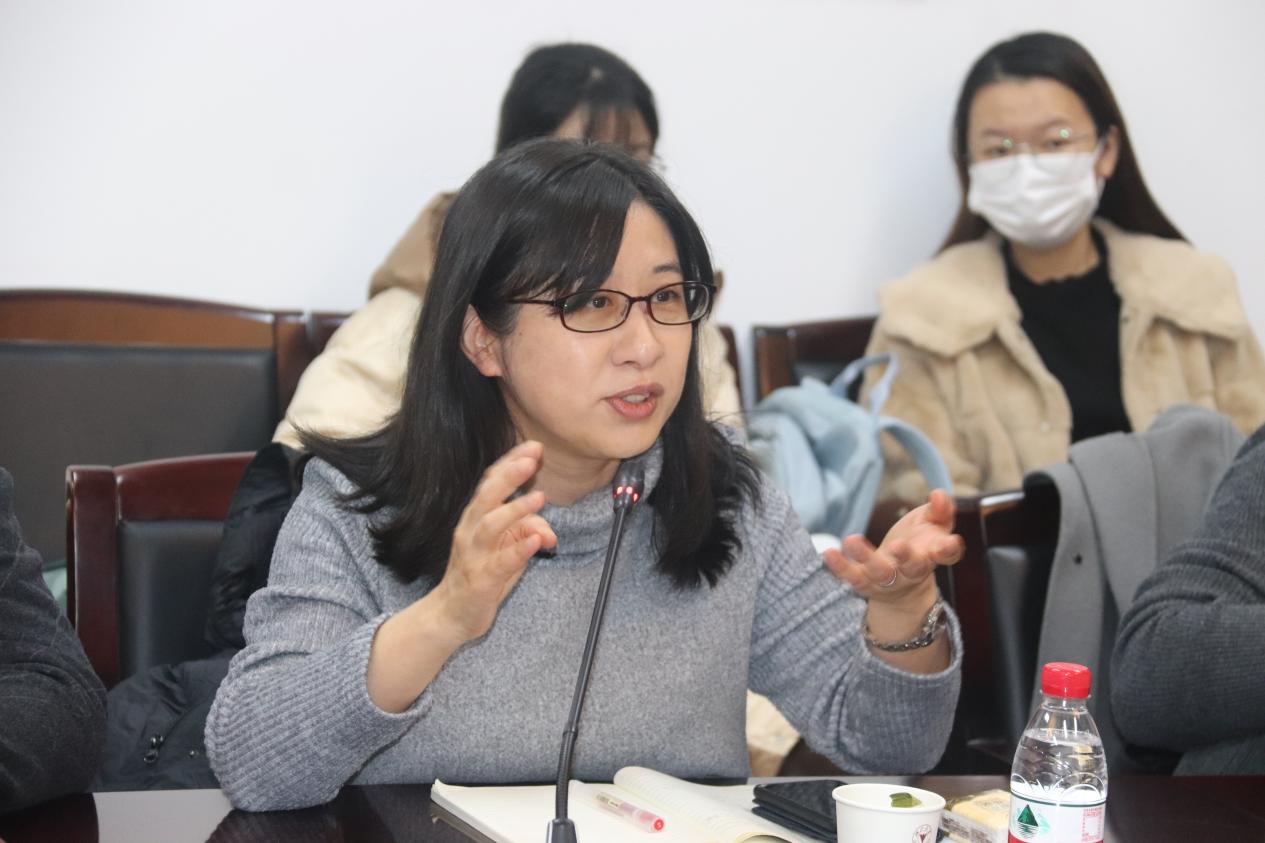
At the beginning of the conference, Deputy Dean Lu Qing expressed sincere and warm welcome to the professors and students of the Law School of the University of Newcastle.And then, briefly introduced the history, academic construction and fruitful achievements of international interactions of Guanghua Law School, expressed the will to strengthen cooperation and seek joint developmentwith the University of Newcastle, and presented souvenirs to the Australian delegation to show respect.
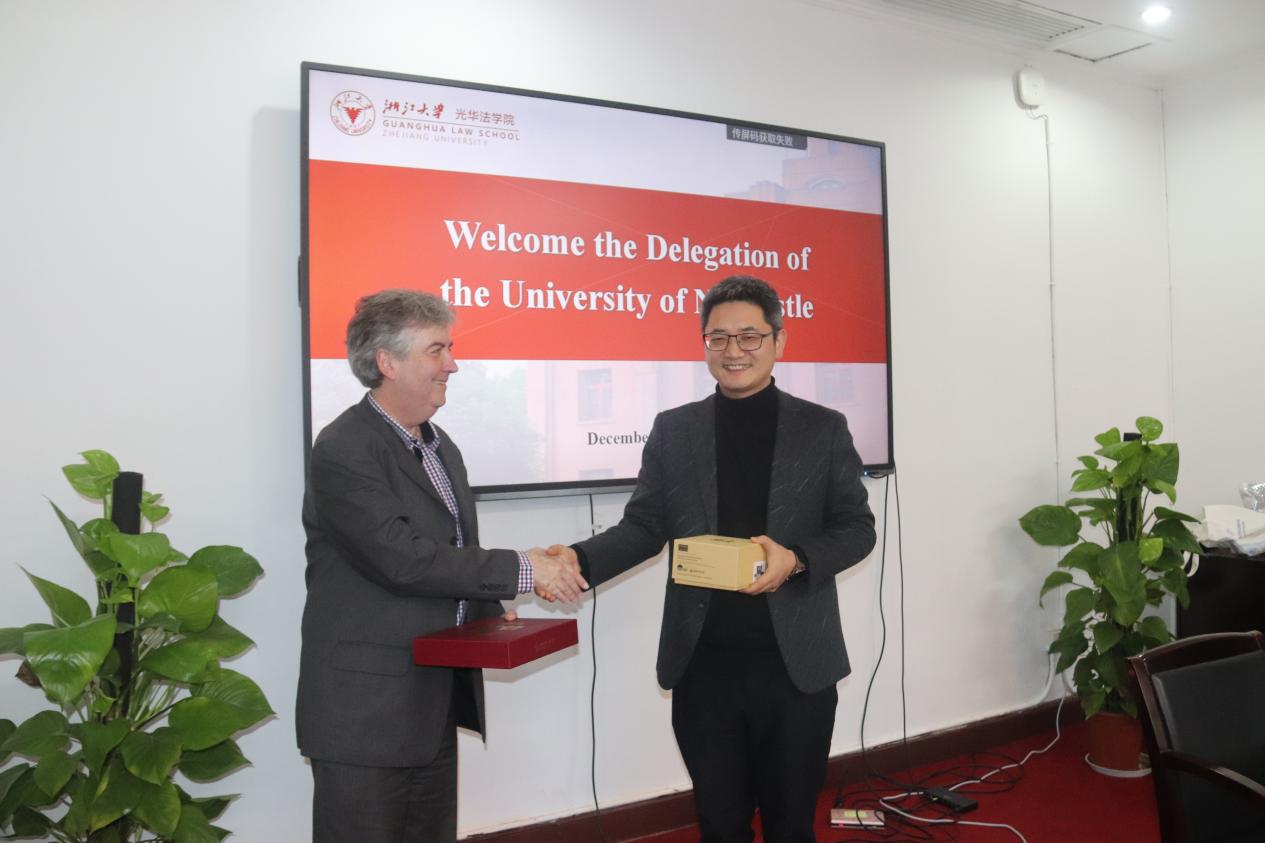
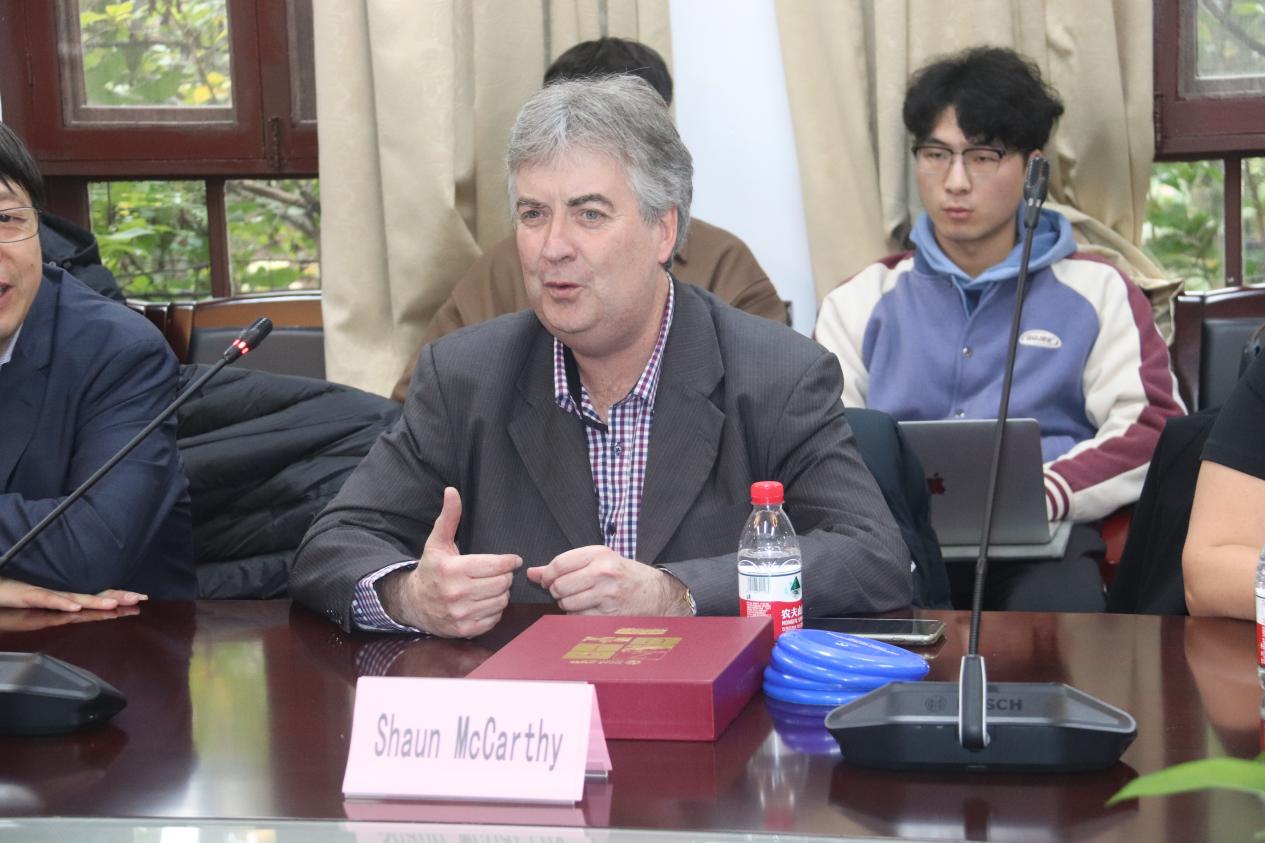
Professor Shaun McCarthy, Deputy Dean of the Law School of the University of Newcastle, gave an overview of the School and particularly emphasize its unique "legal clinic" training model. The core of this model is to provide practice-oriented legal education, which aims to help those who cannot afford expensive legal education to obtain necessary legal knowledge and services. In addition, Professor Shaun McCarthy also introduced the operation of the Legal Research Center of the University of Newcastle and demonstrated its outstanding achievements in scientific research and legal education.

Afterwards,Dr. Wu Peicheng, a researcher of the Hundred Talents Program at the Guanghua Law School of Zhejiang University, published a thought-provoking report entitled "The Refusal to License Intellectual Property as an Antitrust Violation in China". In his report, Dr. Wu provides an in-depth look at China's antitrust legal practices with respect to the refusal to license intellectual property and a detailed comparison with the relevant legal systems in the United States and Europe.
Dr. Wu began by outlining the freedom that intellectual property holders have in principle to refuse to license others to use their intellectual property, and noting that in some cases, antitrust enforcement agencies may askintellectual property holders to license competitors to use their intellectual property, which embodies the potential conflicts between the exercise of intellectual property and competition law to some extent. He then raised a core research question: under the framework of China's anti-monopoly law, when the refusal to license intellectual property might be regulated by the anti-monopoly law, and how to improve China's current practice.
In the report, Dr. Wu analyzed the problems concerning cases of refusal to deal in China in detail, especially the ambiguity in judging violations of the antitrust law. He cited the judgment of China's Supreme People's Court in the Tencent case as an example of how such cases are handled in Chinese judicial practice. Besides, he explored the different approaches of the United States and the European Union in similar cases, pointing out that, after Verizon Communication Inc. v. Law Offices of Curtis v Trinko LLP, the United States judicial practice is often opposed to the essential facilities doctrine, while the European Union has considered the concept of "essential facilities" in some cases.
Finally, Dr. Wu made several recommendations for improving antitrust practices concerning the refusal to license the intellectual property in China, including establishing clear criterion for the analysis of refusal to license the intellectual property cases and taking the possible impact of technological developments into account when considering whether there is a violation of the antitrust law. Dr. Wu's presentation highlighted the scope for discretion in China's legal interpretation in this area and potential directions for future development, not only deepening participants' understanding of China's antitrust law practice with respect to the refusal to license intellectual property, but also providing valuable insights into China's legal development in this area.
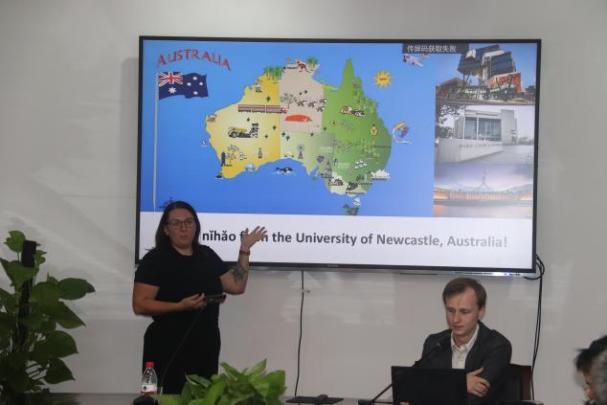
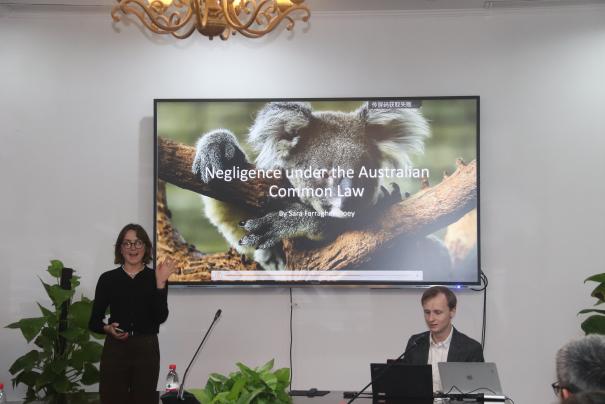
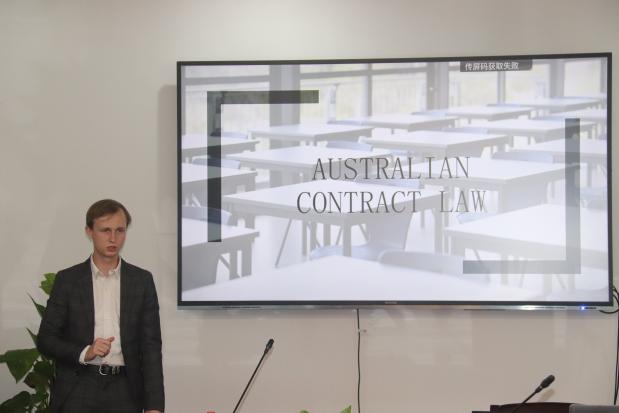
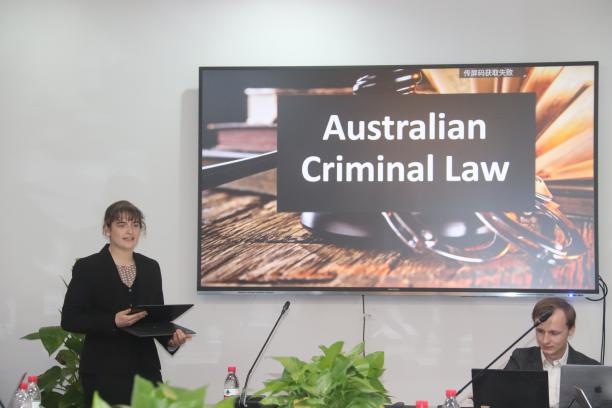
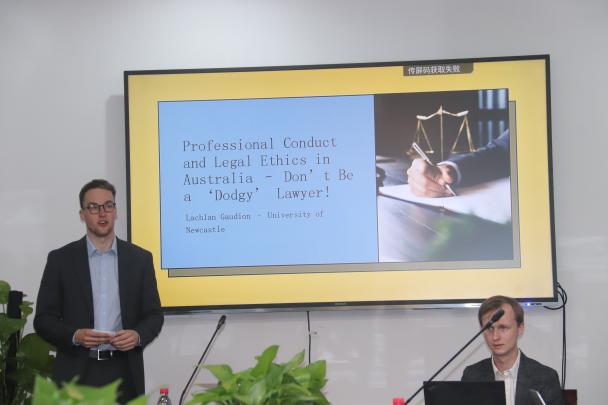
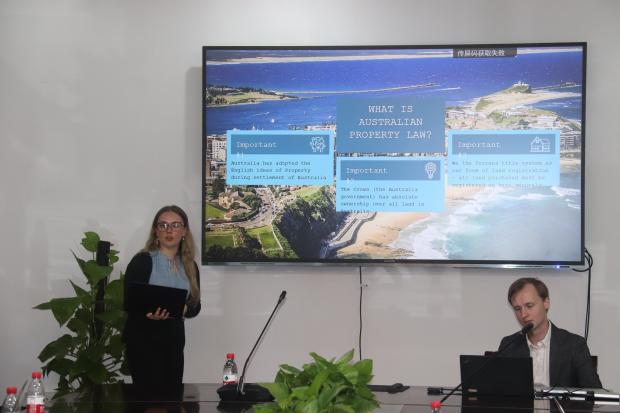
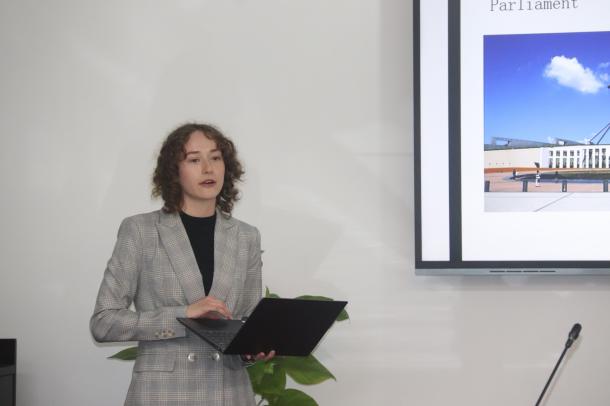
Seven students from the Law School of the University of Newcastle presented a fascinating teaching demonstration of the "legal clinic". They not only explain the basic knowledge of Australia's common law legal system, the federal Constitution and contract law in detail, but also delve into the mode and procedure of legislation, as well as the problems in the current legal system. This vivid demonstration not only enhanced the understanding of both sides on their respective legal education systems, but also provided a valuable learning opportunity for the professors and students.
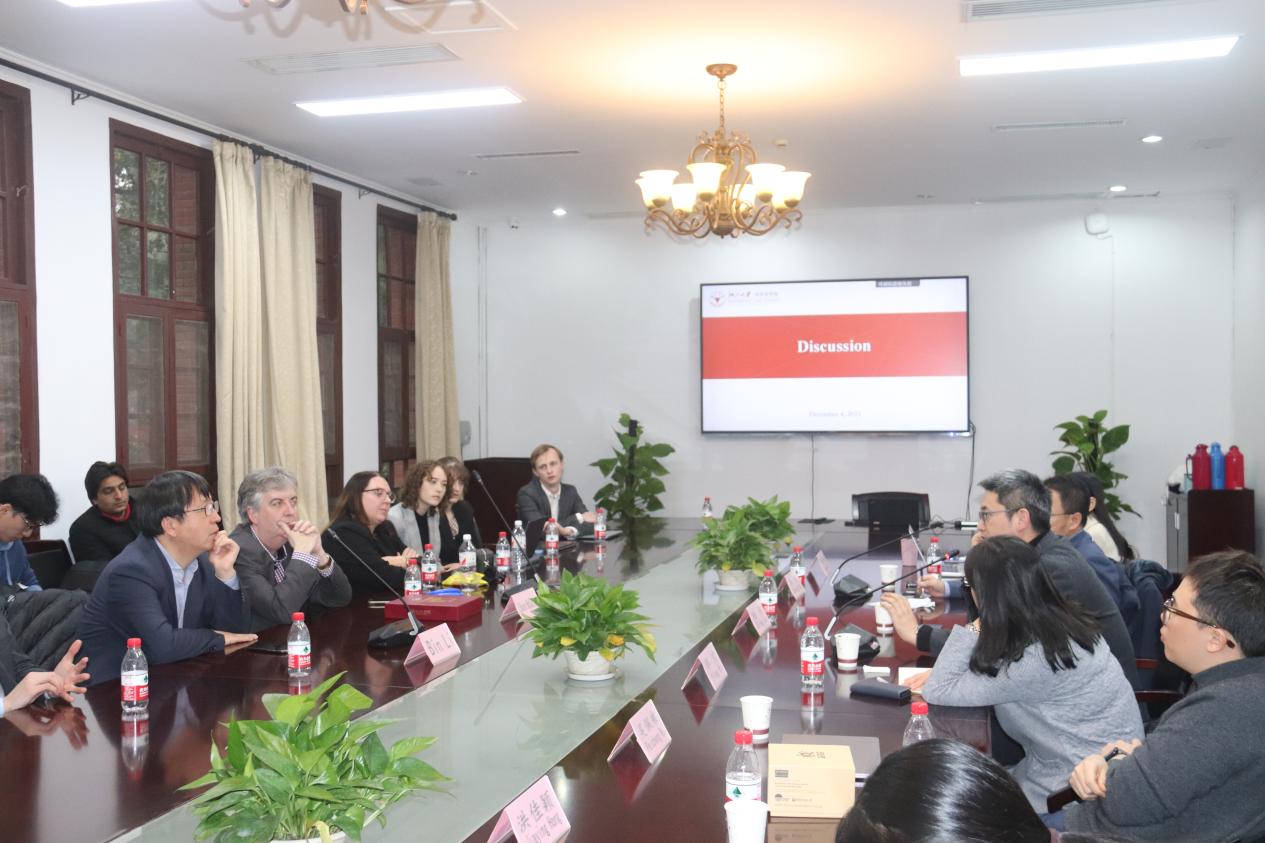
At the end of the event, the professors and students of both sides had full exchanges and discussions on a number of hot topics such as the application of artificial intelligence in the legal field in the Internet era and the development prospect of the teaching model of the "legal clinic".
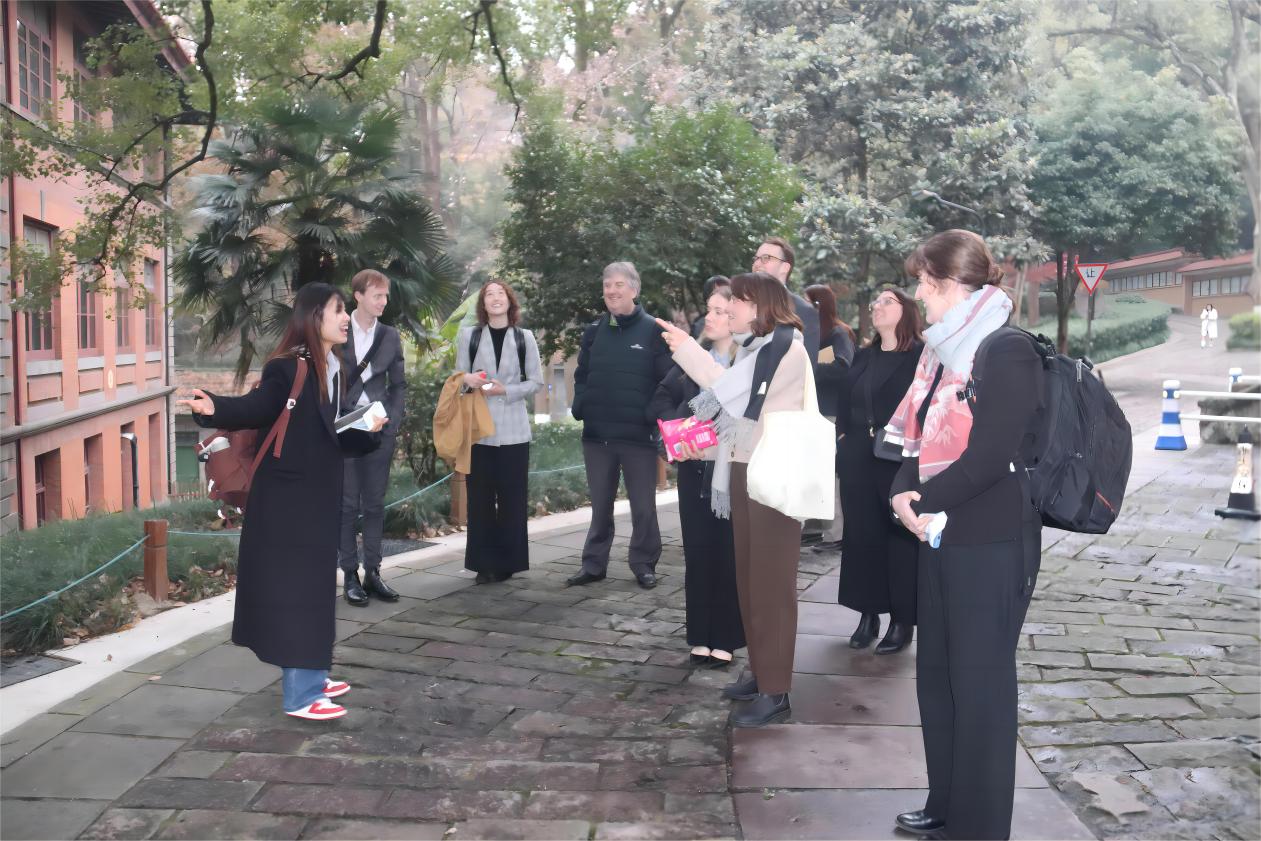
Finally, Tan Jiahui, a master candidate from the Guanghua Law School, showed the visitors from Australiaaround the Zhijiang Campus of Zhejiang University, introducingrelated history and culture of the campus to them. This academic exchanges not only reinforce the connections between thetwo law schools, but also built a solid bridge for the future cooperation and exchanges.
